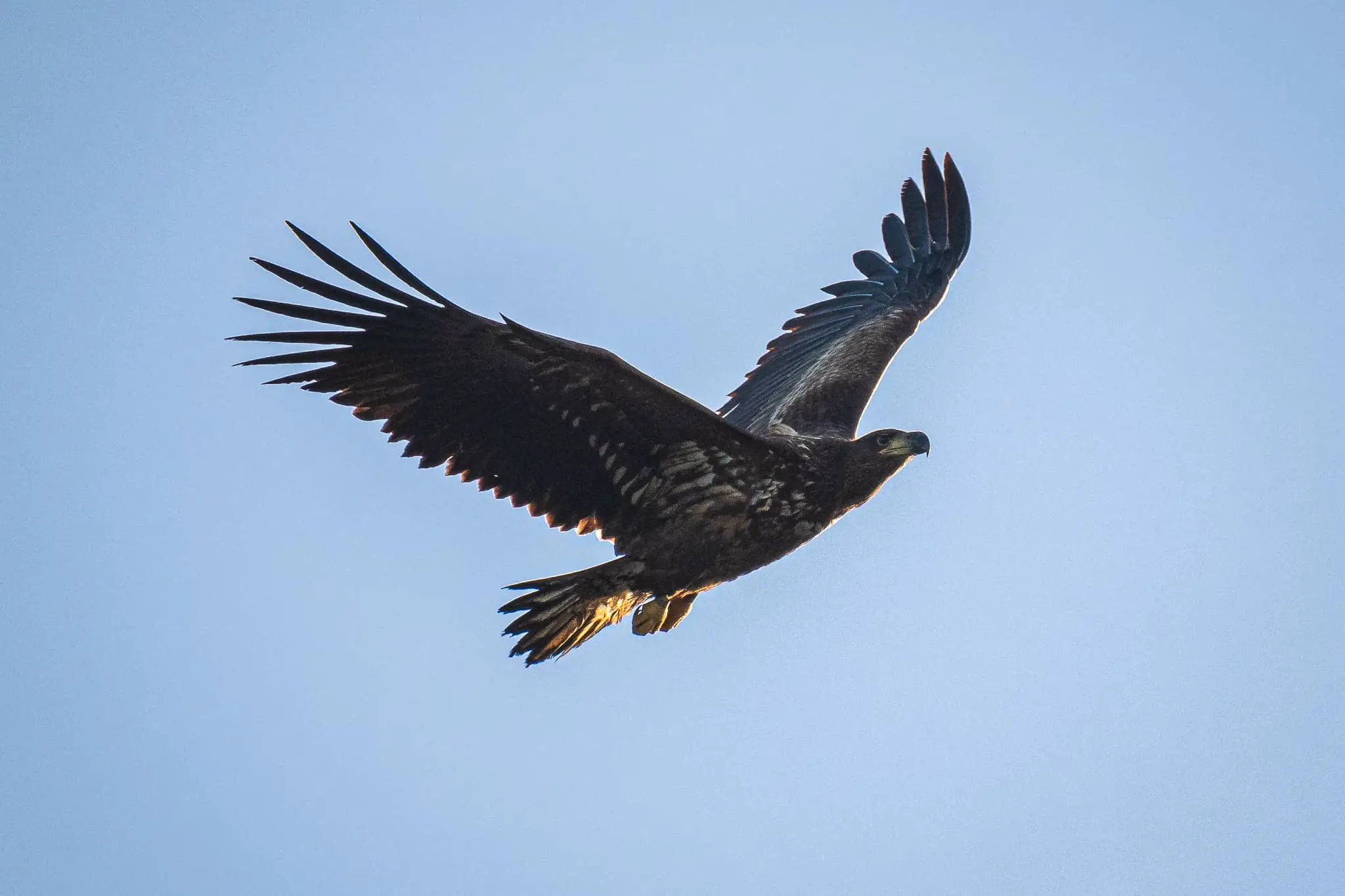The post mortem of an Isle of Wight White-tailed Eagle (G461) found dead in Dorset earlier this year has revealed the high levels of rodent poison found in its liver.
As News OnTheWight reported on Tuesday, Dorset Police have shut down the investigation into the death of WTE G461, which was released on the Isle of Wight as part of the re-introduction programme in the South.
High levels of poison
The latest blog from Roy Dennis, who was granted a licence to reintroduce the Eagles on the Isle of Wight with Forestry England, reveals that the bird’s liver contained approximately seven times the amount of brodifacoum required to kill a bird like a White-tailed Eagle.
Roy explained,
“Post mortem and toxicology testing through the Wildlife Incident Investigation Scheme has subsequently identified brodifacoum poisoning as the cause of death. Brodifacoum is a highly toxic anticoagulant rodenticide that causes internal haemorrhaging.
“The bird’s liver contained approximately seven times the amount of brodifacoum required to kill a bird like a White-tailed Eagle.
“The satellite data indicates that the eagle, which was otherwise healthy, deteriorated and died over a period of several days.”
You can read the rest of Roy’s informative blog over on the Roy Dennis Wildlife Foundation Website.
Luxton: Planned land search unexpectedly called off
Katie-Jo Luxton, RSPB Global Conservation Director, told News OnTheWight,
“We are completely baffled by the decision taken by Dorset Police to end the white-tailed eagle investigation so prematurely. Brodifacoum – the rodent poison that killed the eagle – is highly toxic and it is clear that it was being used either incompetently or with intent to kill raptors. Either way, this is an illegal act.
“A thorough land search had been planned on the estate in question, to look for evidence such as poison baits or misuse, but that was recently and unexpectedly called off. The investigation has not been closed by the Health and Safety Executive, but that has now been made defunct by the police communication.
“We seek assurance from Dorset Police that their wildlife crime remit is still operational and that other significant ongoing raptor persecution investigations are fully investigated ‘without fear or favour’ as per Police Oath.”
Reintroduction programme
The birds were released on the Isle of Wight as part of a five-year programme to restore this lost species, led by Forestry England and the Roy Dennis Wildlife Foundation.
The Isle of Wight was chosen as the location to reintroduce the White-tailed Eagles, also known as Sea Eagles, as it offers an ideal habitat for these coastal loving birds.
25 birds released
The first three pairs of juvenile white-tailed eagles were released on the Isle of Wight in August 2019.
In summer 2020, seven more were released and in 2021, another 12 were released on the Island.
Find out more
You can follow the journeys of these majestic birds on Twitter through the Roy Dennis Wildlife Foundation account or the Forestry England account.
Image: © Ainsley Bennett Photography





